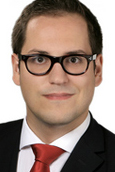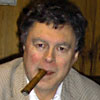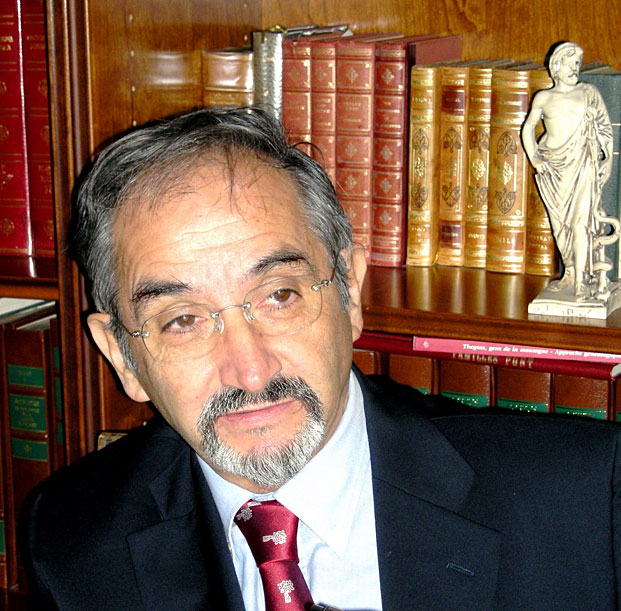Frederik Cyrus Roeder

Frederik Roeder is a German health economist. He studied hospital management, health economics and international business at the universities of Goettingen (Germany), Bayreuth (Germany), Maribor (Slovenia), and Tongji Shanghai (China). He has worked as a Visiting Professor for Health Economics at the Lithuanian University of Health Sciences and as a Visiting Professor for Healthcare Management and Economics at Ilia State University (Georgia). Fred Roeder is the Managing Director of Healthcare Solutions, a service focused on know-how transfer and policy advise for healthcare systems in transition.
Michael Schlander
Professor Michael Schlander MD, PhD, MBA is a health economist at the University of Heidelberg and a professor of health care and innovation management at the University of Applied Economic Sciences, Ludwigshafen. He is the founder and scientific director of the Institute for Innovation and Valuation in Health Care (Inno Val HC) a not for profit institute based in Eschborn, Germany. Professor Schlander who is also a physician has written ground-breaking studies on the role and limits of current evaluation methodology in adminstrative assessments of medical innovation.
Nicoleta Acatrinei
Graduate in economics and in theology, Nicoleta is currently preparing a PhD at the Swiss Federal Polytechnicum (ETH) in Zurich. She has spoken and written on topics related to ethics, economy and theology in Switzerland, China, Denmark and others. She is the author of "St Jean Chrysostome et l'Homo Oeconomicus" a scholarly work that explores the theological roots of market ethics. She has joined Medicine & Liberty in 2009 as our research fellow in charge of Ethics in Economics.
Francis Thevoz
Dr Francis Thevoz is a Cardiovascular surgeon by training. Past-president of the Société Vaudoise de Médecine he is also a former councilor of the City of Lausanne where he served as Director of finances. He is currently a member of the finance commision of the city's parliament. Francis will notably participate in the development of MedLib's, Privamed-Pro project.
Sophie Crespo
Sophie Crespo MD, our special projects & editorial consultant based in Geneva, graduated from Basel University Medical School. She holds specialist titles in intern al medicine and anesthesiology.
Contact: sophiecrespomd@medlib.ch
Fabienne Gay-Crosier
Dr Fabienne Gay-Crosier, joined MedLib's Medical Advisory Council in 2014. She is past president of the professional policy commisssion at the Swiss Society of Clinical Allergology and Immunology and is a firm advocate of professional independence for physicians. Author of "Geneva's White Paper on Allergy" Fillon Impr. Oct. 2015.
Loredana D'Amato Sizonenko MD
Dr D'Amato Sizonenko is a geneticist specialized in rare diseases. She is presently Coordinator for Switzerland of Orphanet, an international database of information on rare diseases and orphan drugs for all publics, designed to contribute to the improvement of the diagnosis, care and treatment of patients with rare diseases.
Martín Krause
Martin Krause is the diirector of the Centro de Investigations de instituciones y Mercados de Argentina: professor of Economics at the University of Buenos Aires.
Philip Stevens
Philip Stevens, Director of Policy at International Policy Network, London is the author of numerous health policy publications, including Fighting the diseases of Poverty (2007), Free trade for better health (2006) and The 10/90 Gap and the diseases of poverty (2004). He has also held research positions at the Adam Smith Institute and Reform in London and holds degrees from the London School of Economics and Durham University.
Shahnaz Radjy
After graduating in Biology at UPenn in Philadelphia, Ms Shahnaz Radjy was active in humanitarian action in Bolivian hospitals, and founded an A-TIC internet venture in Bolivia. She has also organized events for the International Labor Organization in Geneva and worked for the Davos World Economic Forum. Shahnaz is now based in NY and works as senior communications specialist for Vitality.
Bart Madden
Bartley Madden is an independent researcher who has developed "Dual Tracking": a fast lane for access to experimetal medicines, that also introduces an open database on new therapies. Bart Maddens concept is supported by Vernon Smith, Nobel prize in economics 2002 and by other reputed US economists. He has authored a monograph: "Dual Tracking, More Choices Better Health" edited by the Heartland Institute, Chicago.
Stefan Metzeler
Graduate from the Ecole Polytechnique Fédéerale de Lausanne (EPFL). Information and technology specialist, owner at Amadeus IT solutions. Swiss representative fo the International Society for Individual Liberty ISIL.
Contact: smetzeler@medlib.ch
Pierre Bessard
Executive Director of the Institut Constant de Rebecque, Lausanne, and President of the Liberales Institut, Zurich
Henri Siegenthaler
President of the Swiss Society for the Independence of medicine and editor in chief of « Der Arzt und sein Patient / Le Médecin et son Patient » Journal. Author of "Serons nous tous euthanasiés?" Ed.Cabedita (2015).
Pierre Lemieux

Professor of economics at the University of Québec in Outaouais. Author of "Le Droit de porter des armes"(1993), "Comprendre l'économie (2008) and other works such as "Public Health Insurance under a Non Benevolent State". Editor of Liberty in Canada online tribune.
Georges Lane
Georges Lane is a Professor of economics at the University of Paris-Dauphine where he teaches insurance economics.
Philip Stevens
Philip Stevens, Director of Policy
Philip is the author of numerous health policy publications, including Fighting the diseases of Poverty (2007), Free trade for better health (2006) and The 10/90 Gap and the diseases of poverty (2004). His writings on health policy have appeared in a wide range of international newspapers. Philip has also held research positions at the Adam Smith Institute and Reform in London, and spent several years as a management consultant. He holds degrees from the London School of Economics and Durham University.
Ernest Truffer
Swiss ENT surgeon and medical philosopher. One of the founding members of IATROS, a world organization of private and independent physicians. Writes regularly on medical ethics and other issues in various medical journals and in his blog.
Ernest unfortunately passed away on March 11th, 2015 and wil be deeply regretted by all those who knew him. The founding principles of Medicine and Liberty were strongly influenced by his profound understanding of the medical mission and his uncompromising attachment to Hippocratic ethics.
Gabriel Calzada
Professor of economics at the Universidad Rey Juan Carlos, Madrid. Founder of Medicina en Libertad (MedLib.es) and of Madrid's Instituto Juan de Mariana.
Gabriel is president of Francisco Marroquin University in Guatemala and member of the presidential board of the prestigious Mont Pelerin Society
Victoria Curzon Price
Professor of economics at the University of Geneva. President of Institut Constant de Rebecque, Lausanne. Member of Geneva Parlliament. Past president of the Mont Pelerin Society.
Rudolf Mayer
A practicing Opthalmologist in Lausanne. Active in Swiss medical professional politics he is a staunch defender of medical autonomy. He is on the editorial board of the Swiss medical journal "Arzt un Patient" (Physician and Patient)
Alphonse Crespo
Alphonse Crespo founder and executive director of Medicine and Liberty. Swiss orthopedic surgeon, author of Esculape Foudroyé (Les Belles Lettres 1991), ISBN 2-251-39008-1 and of numerous essays and articles such as Black Market Medicine an Ethical alternative to State Control, Outlawing Medicine or The End of Welfare and its effect on the Poor. President of the Cercle de philosophie politique Benjamin Constant at the Institut Libéral a Swiss think tank founded in 1979. Also conducts Med-Consilium a Swiss accident insurance consulting & assessment independent service.
Serban Sichitiu
Reputed paediatrician practicing in Lausanne. He was one of the founders of Switzerland's Patient and Physician Union active in the defense of patient and phyisician rights and liberties.
Medicine & Liberty
Sentier de la Tour-Carrée 9
CH-1800 Vevey - Switzerland
Tel & fax: 41 21 922 60 82
info@medlib.ch
What We Can Learn From a Canadian Physician About Obamacare
When Dr. Jacques Chaoulli decided to emigrate to the New World in 1979, he opted for Canada, rather than the United States. He wanted to live in the country that seemed more compassionate. He ended up investing his courage and energy in a formidable legal battle to change the rationed Canadian health system he discovered.
Dr Chaoulli in Salt Lake City (with A. Crespo)
What We Can Learn From a Canadian Physician About Obamacare
By: Alieta Eck, MD

When Dr. Jacques Chaoulli, a French trained physician, decided to emigrate to the New World in 1979, he made the decision to go to Canada, rather than the United States. He wanted to live in the country that was more compassionate. After all, any government that provides its citizens with health care must have its priorities straight, holding a kind regard for the poor.
Fifteen years later he found himself bucking the very system that had attracted him in the first place. In Quebec, he had developed a house call system employing six other doctors, where patients could be seen and cared for quickly. But the local medical association, having the monopoly to negotiate with the government, convinced the authorities to put him out of business. The other physicians left, and Dr. Chaoulli was forced to shut down. His patients begged him to continue, caught in a trap that the poor could not escape. Middle and upper class patients could save up and travel to the United States for more timely, higher quality medical care, but the poor had to wait or simply accept poorer quality care. They were forbidden by law to buy a catastrophic private health plan that covered the same services listed in the Quebec government Medicare plan.
Furthermore, they were not allowed to contract privately with physicians for basic medical services. A willing provider could not give care to a patient willing to pay cash.
Dr. Chaoulli, single-handedly, sued the Canadian single-payer system and found himself facing the Canadian Supreme Court. He argued that the low quality of care imposed upon patients by government, long waiting lists for surgery, and the prohibition from purchasing a private health plan or medical care of one’s own choice, violated patients’ “constitutional right to life, liberty and security.”
In the end, the court agreed, saying that “access to a waiting list is not access to health care, and that a low quality of medical care could threaten a patient’s life.” While the Canadian system is still in place, cracks in the wall have begun to appear.
In 2008, when asked whether it was absurd that the government put itself in the business of telling doctors whom they can and cannot treat and whether people can purchase services, Dr. Chaoulli replied:
“We have to understand the historical roots. Historically, the government started to intervene a long time ago because the workers were suffering because they didn’t have access to health care. It was to protect those who were not able to pay. Today, the government is preventing those who are suffering from using their own money to get care, and it ends up in an infringement to the right to life, security and liberty of a person. This is another story here. It is a story where a government is, practically speaking, killing patients at random. This was on the front page of the National Post the day of my judgment–that the Supreme Court’s meaning is that government may not kill people.” (http://www.fcpp.org/publication.php/2006)
Dr. Chaoulli came to speak at the annual meeting of the Association of American Physicians and Surgeons at Salt Lake City, Utah, in September of 2010. He sees the seeds of government coercion in ObamaCare and came to warn us that a government that tries to do too much becomes a heartless bureaucratic nightmare. He insists on the importance of challenging the constitutionality of the individual mandate for the coverage of doctor’s visits, the prohibition of purchasing a health plan limited to catastrophic coverage, and of statutes giving power to third party payers to deny payment based on their own determination of medical necessity.
The United States is heading in the wrong direction. Instead of encouraging free market solutions to our health care system, solutions that work in every other sector of the economy, ObamaCare is pushing us headlong into a top-down command and control health care system that will bankrupt the country and not end well. It must be repealed. That was the message that Dr. Jacques Chaoulli brought to the AAPS Doctors Tea Party at the Capitol Building in Salt Lake City. That was the message that we ought to heed.
To AAPS original podcast & video
October 12, 2010

 RSS feed
RSS feed